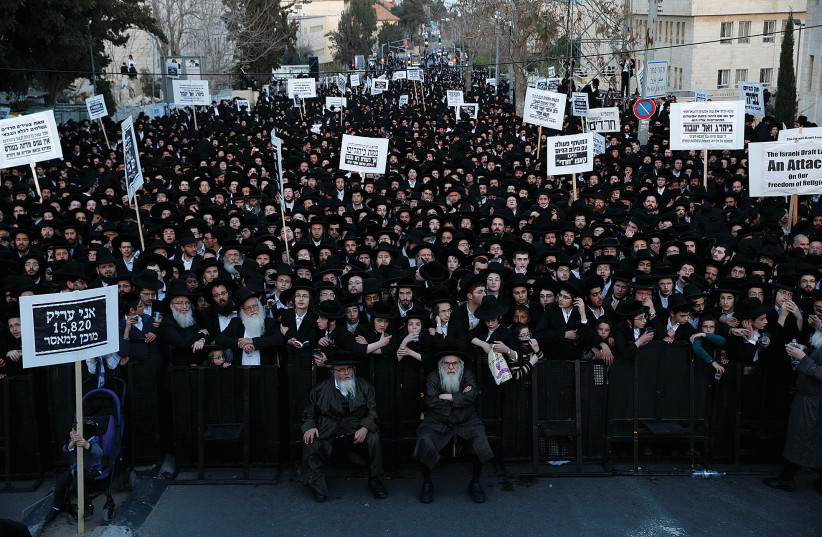Amid pressure against serving in the IDF from the ultra-Orthodox sector on one side, and from those protesting the government’s judicial overhaul on the other, Defense Minister Yoav Gallant said on Tuesday that military service must remain a supreme value.
“Especially now, we must preserve substantial service in the IDF as a supreme and leading value for the state, both among mandatory soldiers and reservists,” Gallant said at an IDF intelligence ceremony marking the 50th anniversary of the Yom Kippur War.
"Connect different dots to the picture, and change what it looks like,"
IDF Chief-of-Staff (Lt.-Gen.) Herzi Halevi
“Israel is surrounded by enemies; we’ll always have smaller numbers. We need to find the power and best quality [soldiers] to cope with [the threat] from hundreds of millions,” he added. “Anyone who thinks some random number of soldiers will always accomplish the same thing as another similar number of soldiers is dead wrong.”
On Monday, Gallant demanded that all sides of the judicial overhaul debate reach a compromise so as not to further the dangerous undermining of the IDF’s cohesion. He has also come out swinging against the ultra-Orthodox parties’ push for a blanket exemption from service.

IDF must learn lessons of Yom Kippur War
Gallant added that “proper management of military forces is tied to intelligence. High-quality intelligence answers the questions of: What do we need defense from? What should we prioritize? Where do we focus our attack, at what moment, and how should we mount it?”
In the wake of the “groupthink” that blinded IDF intelligence from the reality of Egypt’s surprise attack in 1973, with little attention given to minority opinions warning of an attack, he urged intelligence officers to “make sure to make your position heard, in all places,” even if it goes against the stream.
He said it was crucial that the IDF always be ready for even unlikely dangerous scenarios to avoid a future grave error, as occurred in 1973.
Likewise, IDF Chief of Staff Lt.-Gen. Herzi Halevi encouraged the intelligence branch to seek diverse opinions to avoid the same problematic groupthink, which can lead to being caught off guard.
“Connect the dots differently, and change reality,” said Halevi, adding that sharing and cooperation of intelligence between IDF intelligence, Mossad, Shin Bet (Israel Security Agency), and allies are a huge advantage to avoid getting blindsided.
IDF Intelligence chief Maj.-Gen. Aharon Haliva listed various “commandments” that the intelligence branch now follows post-Yom Kippur war, such as that intelligence officers must “increase listening to any doubts and to freedom of expressing contrary thoughts to officers of any rank, and to encourage an organizational culture of open debate.
“Stay away from overconfidence, emphasize humility. No one is free from mistakes,” he said, calling this the only attitude that truly promotes learning and improvement.
This is the same reason, he said, that “it is the power of talented people, not technology and machines which win wars – because we continue to learn and improve.” He also emphasized how crucial it is for reservists to continue their service in the intelligence apparatus.
